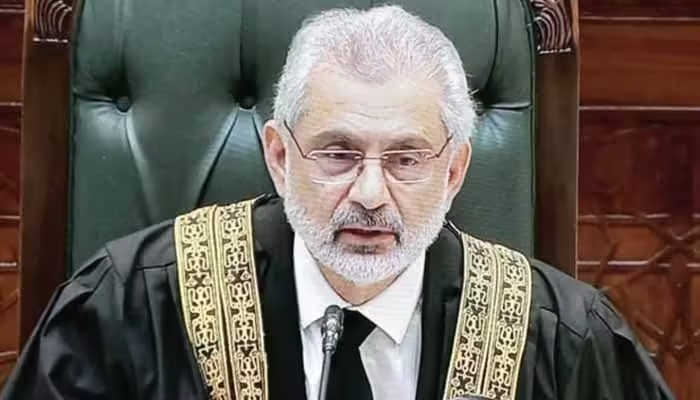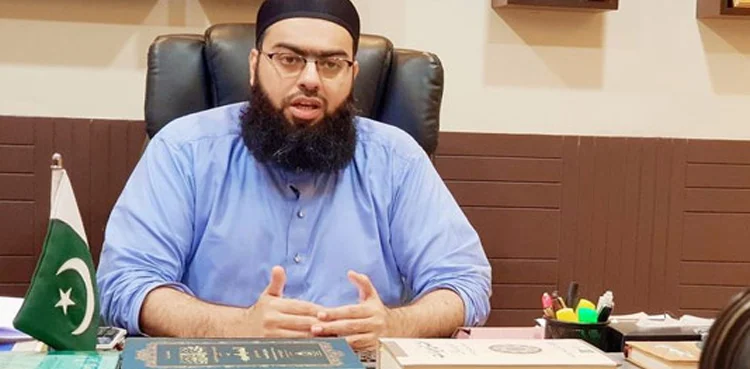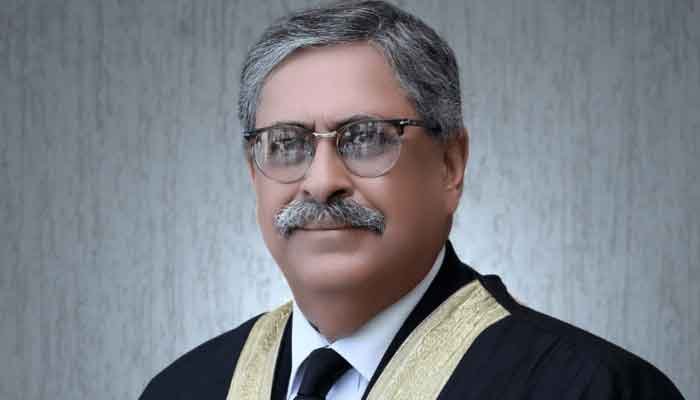During the Supreme Court hearing of the contempt of court case against Mustafa Kamal and Faisal Vawda, Chief Justice Qazi Faiz Isa made notable remarks reflecting his concerns over the current state of media conduct and its impact on the judiciary. His comments underscored a broader issue of media responsibility and the influence of public discourse on judicial proceedings.
The Hearing and Chief Justice’s Perspective
During the hearing, Chief Justice Isa expressed his reluctance to pursue contempt of court proceedings, drawing a personal anecdote from his childhood. He remarked, “In my childhood, my mother used to say what he says is what he says,” indicating a belief in straightforward communication and accountability.
The Chief Justice elaborated on his stance, stating that he himself did not believe in the necessity of contempt of court proceedings, except in situations where there was no alternative. He highlighted the difference between past and present public discourse, noting that discussions once confined to street corners are now broadcast on television channels.
Media’s Role and Legal Knowledge
Justice Aqeel also voiced concerns during the hearing, pointing out that individuals with little to no legal knowledge often appear on TV channels, contributing to a misinformed public discourse. He emphasized the need for a mechanism to address this issue, suggesting that a better-informed public could lead to more respect for judicial processes.
Justice Qazi Faiz Isa further stressed that the judiciary has no inherent interest in pursuing contempt proceedings but felt compelled to act due to the deteriorating societal respect for the courts. He noted that while the judiciary is cautious about protecting media freedom, the current media landscape has led to the destruction of societal values and respect for legal institutions.
The Role of Court Reporters
The Chief Justice praised court reporters for their role in society, urging them to accurately convey the court’s proceedings and decisions. He expressed frustration with premature criticism of judicial verdicts, asserting that some individuals act as though they should be sitting in the judge’s chair, undermining the authority and credibility of the judiciary.
The Attorney General’s Report
During the hearing, the Attorney General informed the court about an insulting news conference held by Rauf Hasan, a member of PTI. The Attorney General stated that Hasan made derogatory remarks about both the Chief Justice of Pakistan and the Chief Justice of Islamabad High Court, which he refrained from repeating in court.
The Chief Justice responded by reiterating his reluctance to take personal offense, recalling his mother’s wisdom: “At the age of fifty-five, the mother used to say that what she says is what she says.” This comment highlighted the Chief Justice’s preference for focusing on broader judicial responsibilities rather than personal grievances.
Broader Implications and Conclusion
The hearing shed light on the complex relationship between the judiciary and the media in Pakistan. The Chief Justice’s remarks emphasized the importance of responsible media conduct and the need for a well-informed public. The judiciary’s cautious approach towards media freedom aims to balance the protection of press liberties with the need to maintain respect for judicial processes.
This case underscores the challenges faced by the judiciary in navigating the pressures of public opinion and media influence. As the Supreme Court continues to address these issues, the comments from Chief Justice Qazi Faiz Isa and Justice Aqeel reflect a broader call for a more informed and respectful discourse surrounding legal matters in Pakistan.



